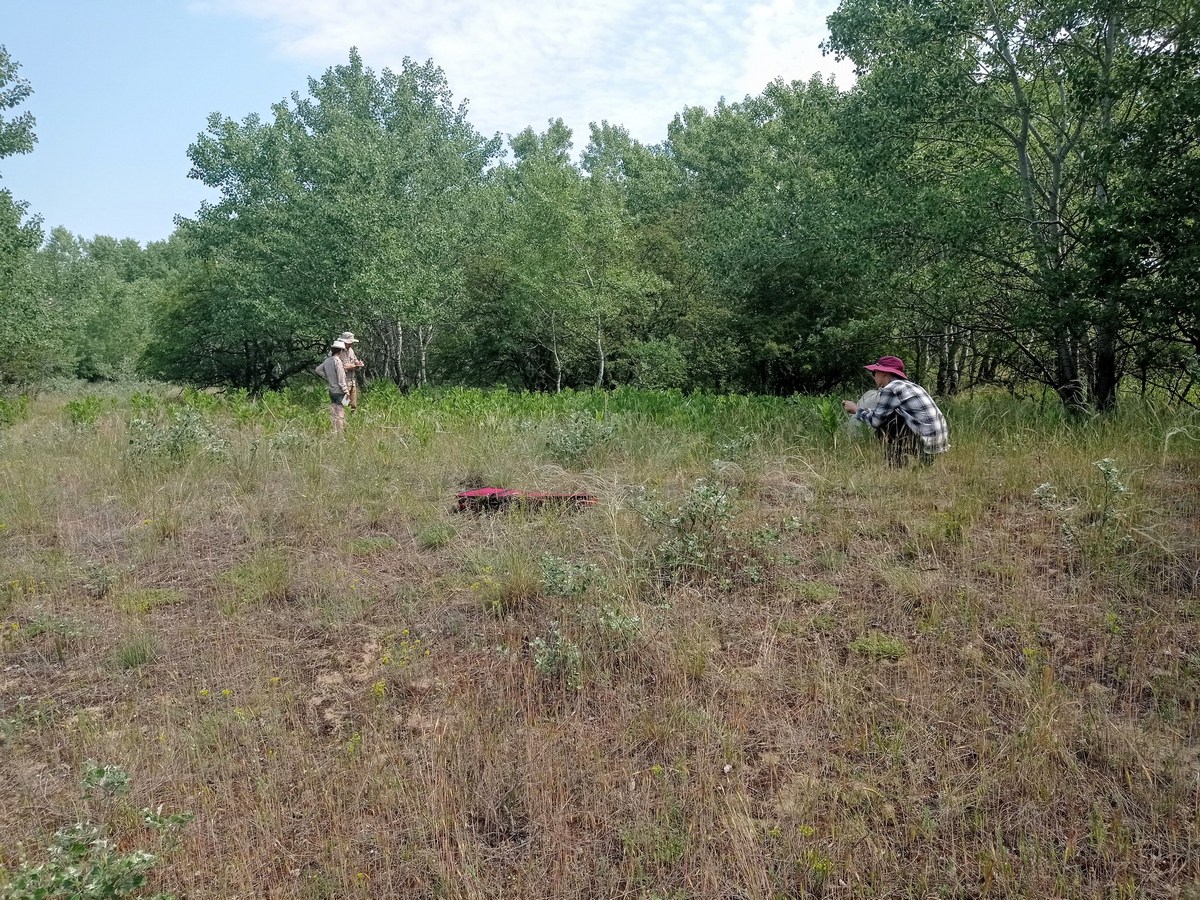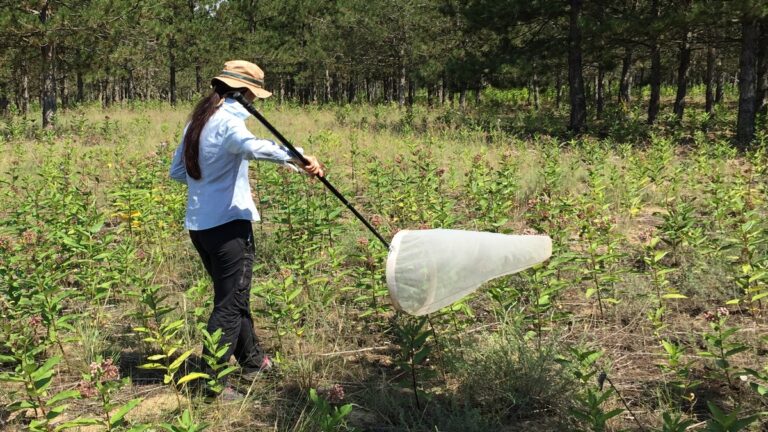Plant invasion and habitat fragmentation have adverse effects on biodiversity in almost all ecosystems. Our research explored the direct and indirect effects of common milkweed(Asclepias syriaca L.):invasion on plant and arthropod biodiversity. For our study, we selected 30 Hungarian forest-steppe fragments of different sizes. Each was sampled in a common milkweed-invaded area and a control area. We recorded vegetation structure, measured temperature and soil moisture, and collected data on arthropods with different ecological roles in the invaded and control areas of the fragments. We studied plants, bees, butterflies, flower-visiting wasps and flies, true bugs and spiders.
Temperature and soil moisture were lower in the invaded area than in the control area. Common milkweed had a positive effect on plant species richness and flower density. We found mainly indirect effects of invasion on arthropods through changes in habitat microclimatic characteristics and food sources. Pollinators responded positively to the abundance of native flowers, so that the common milkweed had an indirect positive effect on pollinators. Similarly, we found higher numbers of true bug species in invaded areas than in control areas, as the species richness of true bugs also increased with increasing diversity of native plant species. Predators were positively affected by complex vegetation structure, higher soil moisture and lower temperatures. Furthermore, increasing fragment size negatively affected spider species richness in control areas but did not affect areas invaded by common milkweed. Grassland specialist spiders were more sensitive to fragment size than generalists, while generalist spider species were more sensitive to invasion.
The positive effect of milkweed on generalist species may homogenise communities in the long term. The density of common milkweed and the success of its dispersal may increase with fragmentation, and we therefore recommend removing invasive plants from small habitat fragments to preserve native habitat. The study of generalist species and the indirect effects of invasion are essential to understanding the impact of invasive plant presence.
Related links:
This research was supported by the National Talent Programme of Hungary and the Prime Minister's Office (NTP-NFTÖ-21-B-0288), and by the National Laboratory for Health Security (RRF-2.3.1-21-2022-00006), Centre for Ecological Research, Budapest, Hungary.



